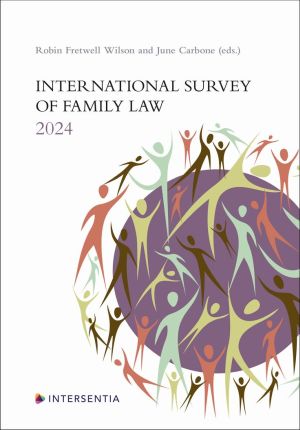
The International Society of Family Law is an independent, international, and non-political scholarly association dedicated to the study, research and discussion of family law and related disciplines. The Society’s membership currently includes professors, lecturers, scholars, teachers, and researchers from more than 50 different countries, offering a unique opportunity for networking within a truly international family law community.
The 2024 edition of the International Survey continues the celebration of the International Society of Family Law’s (ISFL) fiftieth anniversary. This second of two Jubilee editions begins with memorials to Professor Sanford Katz, a giant in the field of family law, adds reflections on the Society’s history and contributions to the global development of family, and includes retrospectives on 50 years of family law development on topics such as the marriage equality debate, the International Convention on the Rights of the Child, and the distinctive evolution of family law in Brazil, given its colonial heritage, China, with its feudal origins, France, Italy, and Portugal, where the national developments have taken place in dialogue with the European Court of Human Rights, Taiwan, in light of the changing status of women, and the United States, in the context of a federal system that sometimes produces convergence and other times divergence among the fifty states.
The Second Jubilee edition also includes updates on recent developments, starting with an assessment of the changing role of gender equality as a source of backlash as well as well as progress, and continuing with chapters on the challenges in Poland in dealing with the large influx of Ukrainian refugees, many of them minors, in Trinidad and Tobago in implementing a right to education for migrant children, and in Serbia in reconciling the decisions of the European Court of Human Rights and Serbian law in addressing LGBT rights. The volume ends with chapters on fathers’ rights in the abortion context in South Africa, the US Supreme Court’s failure to develop a comprehensive jurisprudence addressing children rights, and the complexity of evaluating the current state of abortion regulations across the fifty American states.